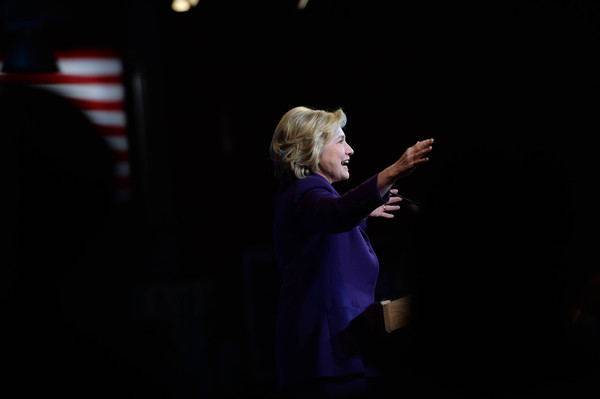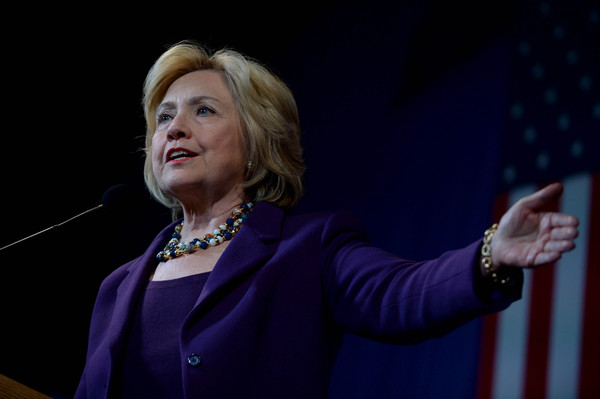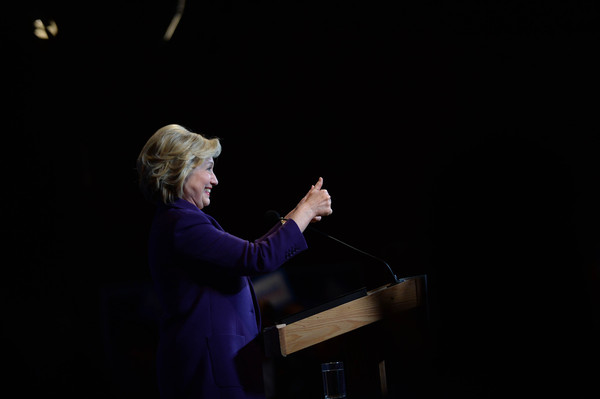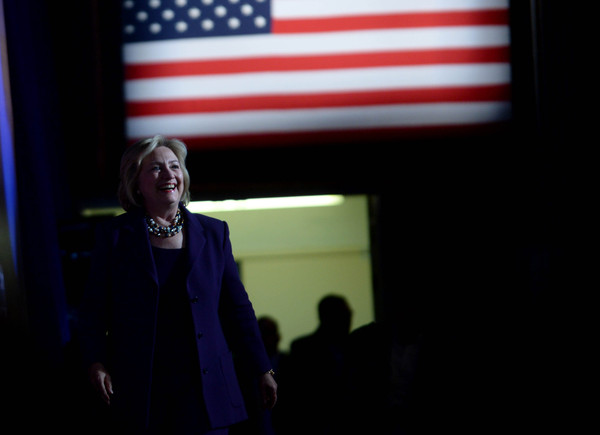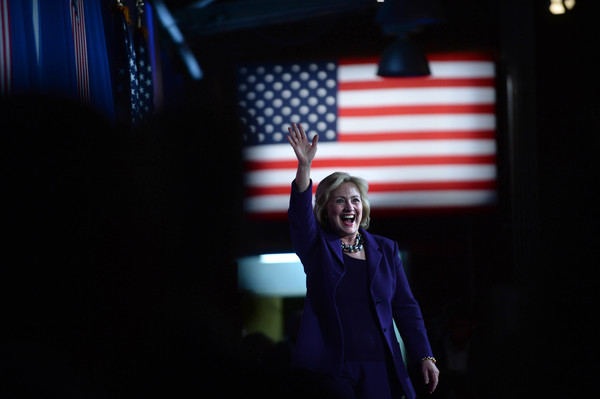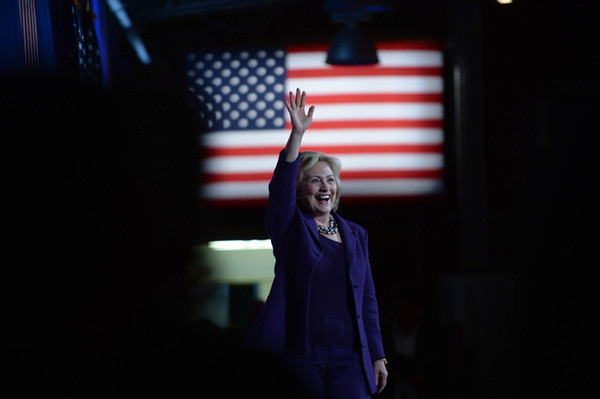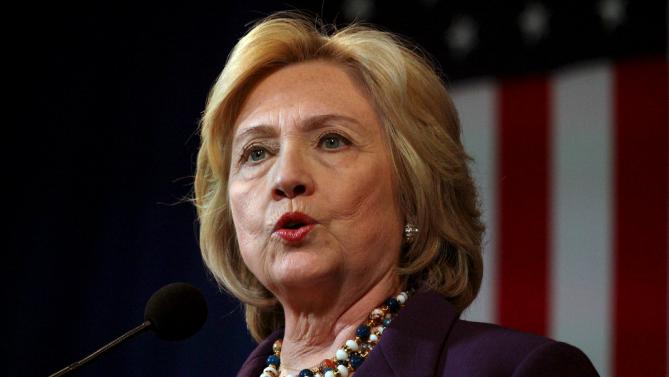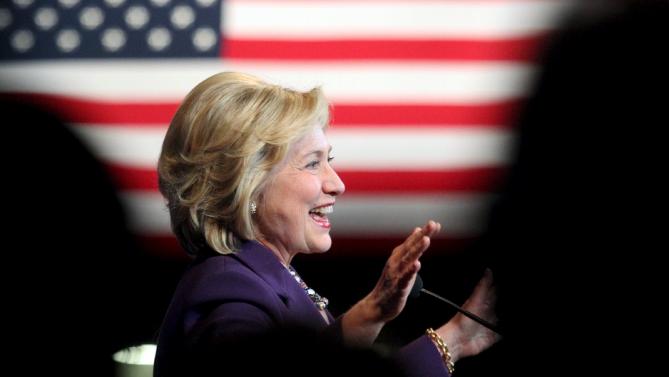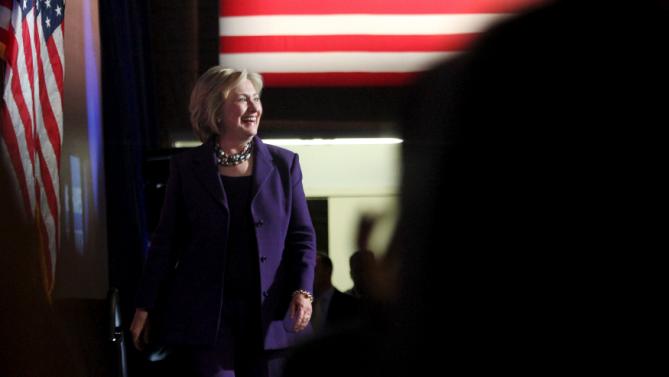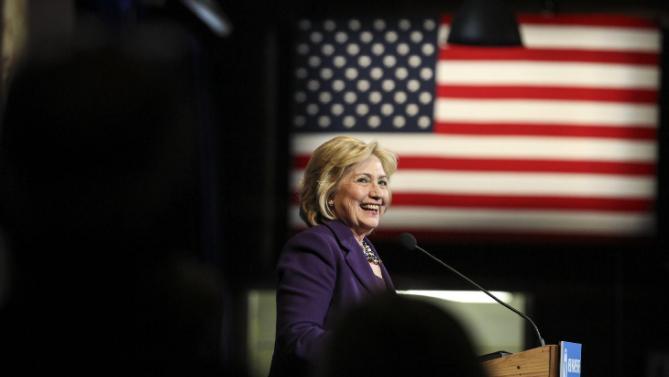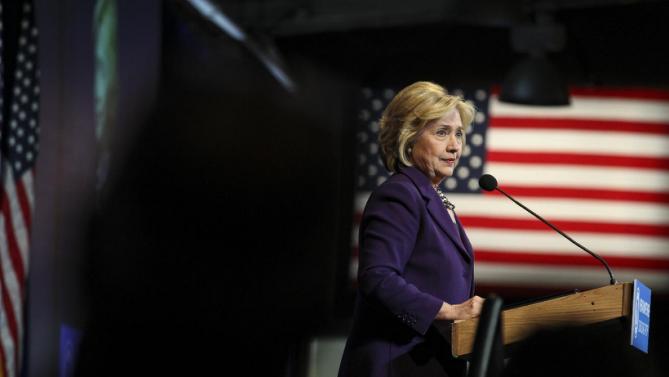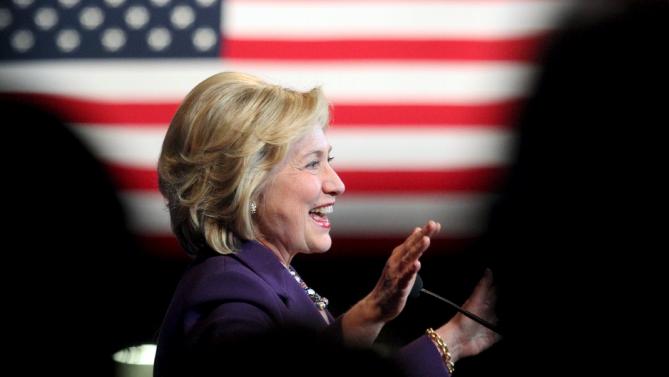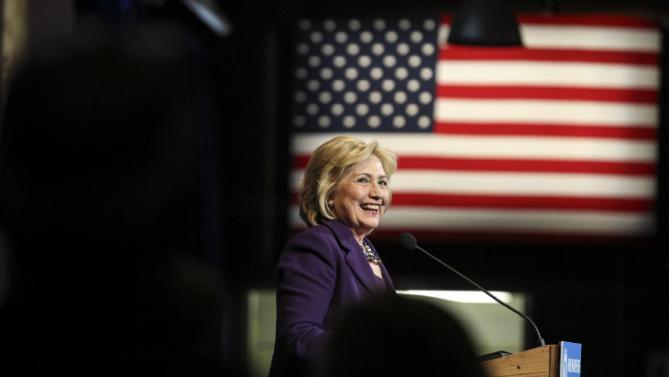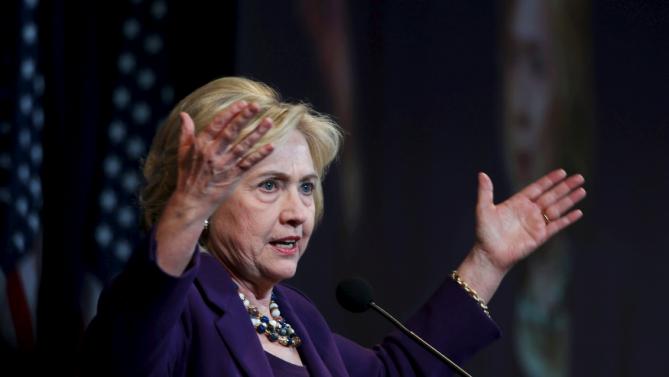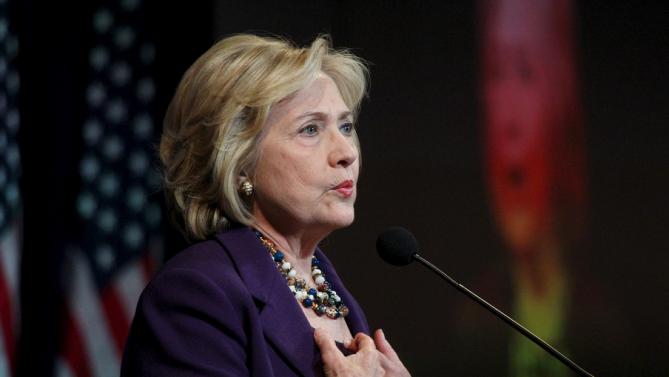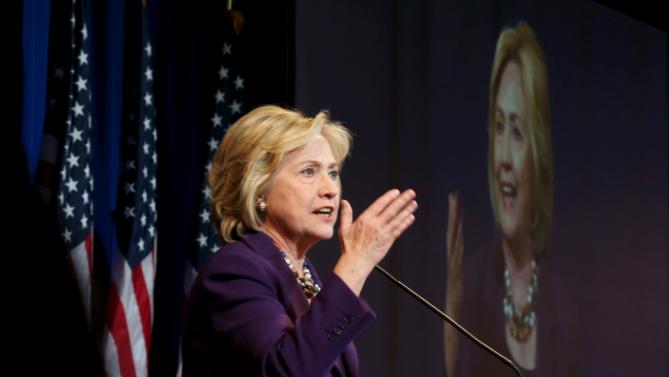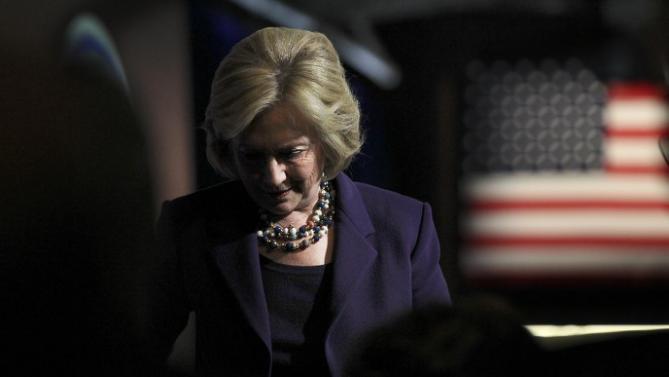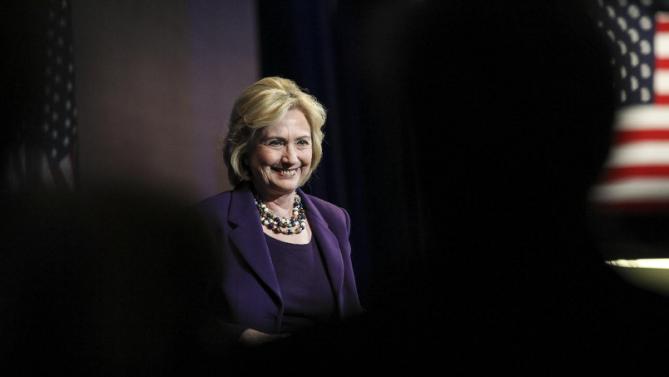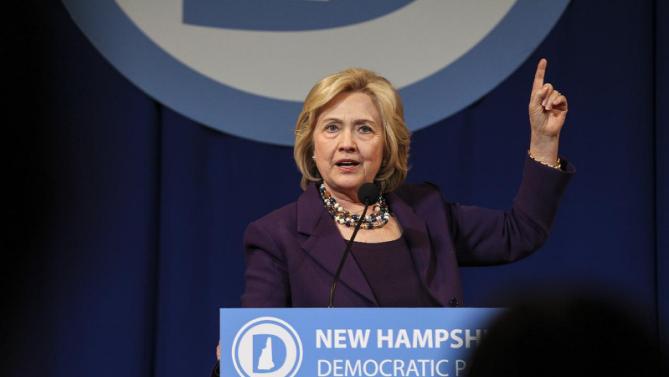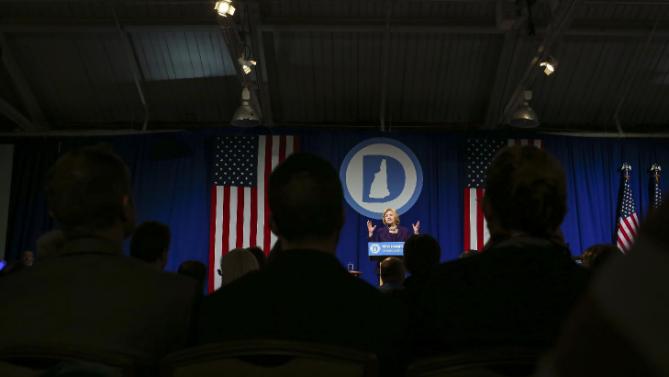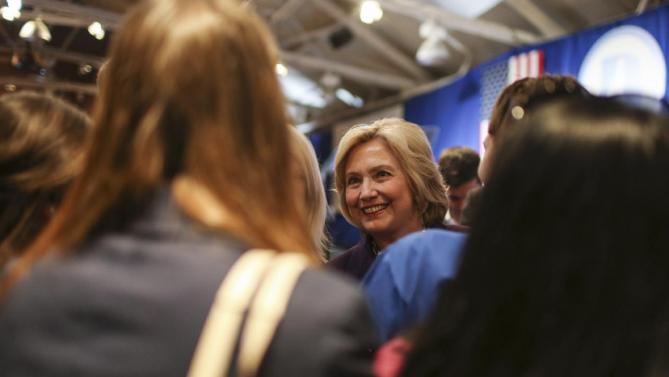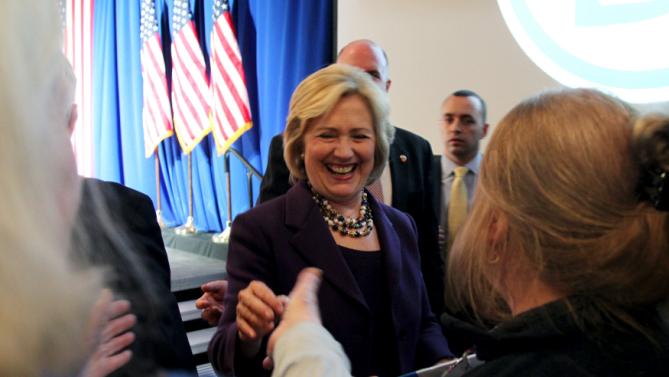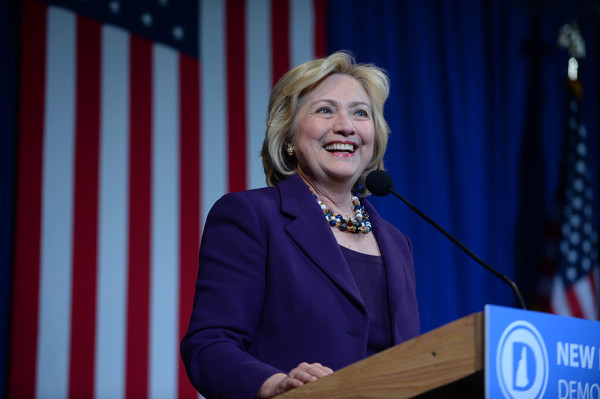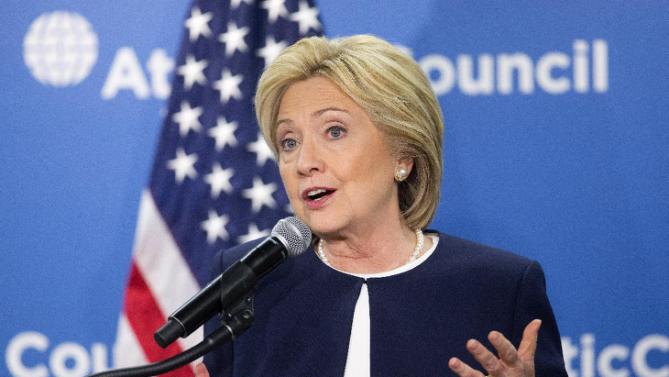
- Democratic presidential candidate Hillary Clinton speaks at the Atlantic Council Women's Leadership in Latin America Initiative in Washington, Monday, Nov. 30, 2015. (AP Photo/Pablo Martinez Monsivais)
View on C-SPAN>>>>
Women for Hillary Campaign Endorsement Announcement
Thirteen of the 14 female Democratic senators announced their endorsement of 2016 presidential candidate Hillary Clinton. They explained why they were supporting her presidential bid, and afterward, the former Secretary of State Clinton delivered remarks supporters.
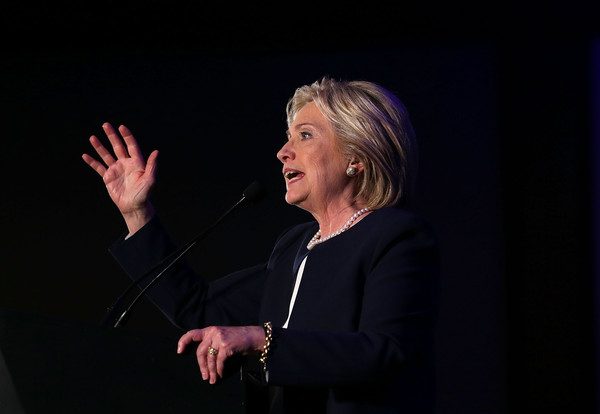




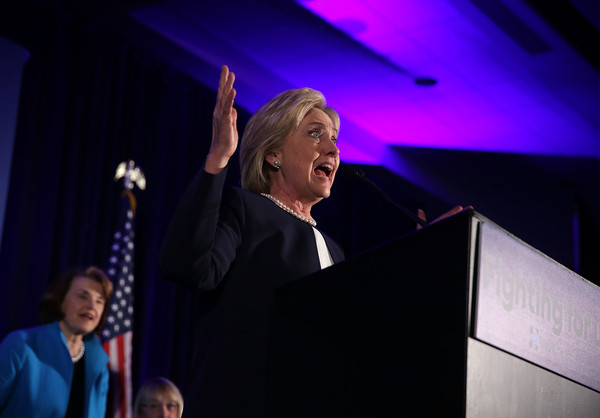
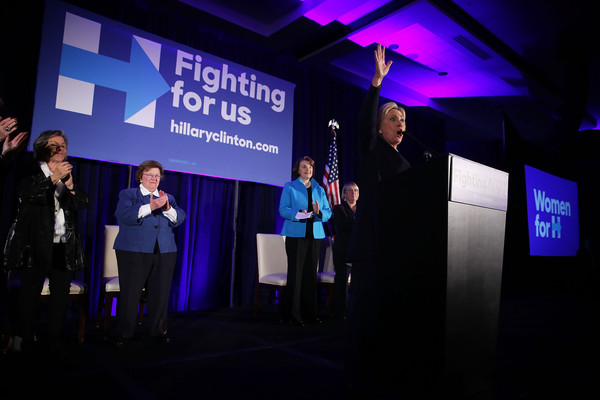
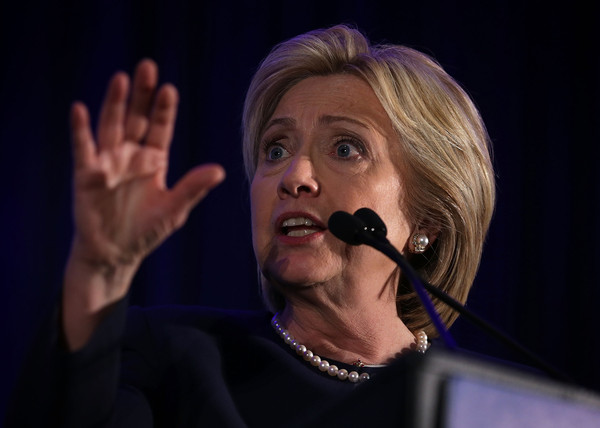
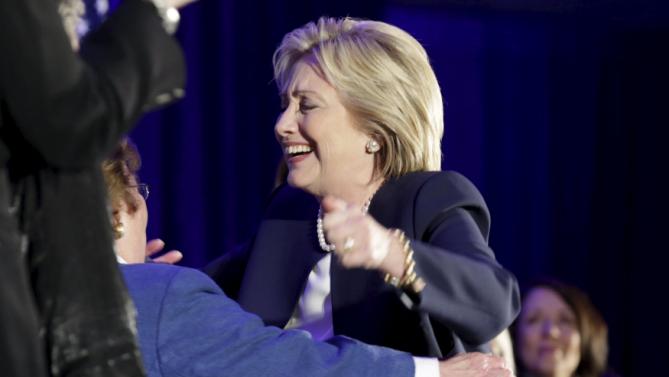
- Democratic presidential candidate Hillary Clinton hugs Senator Barbara Mikulski (D-MD) as she joins 13 female senators for a "Women for Hillary" endorsement event and fundraiser in Washington November 30, 2015. REUTERS/Joshua Roberts
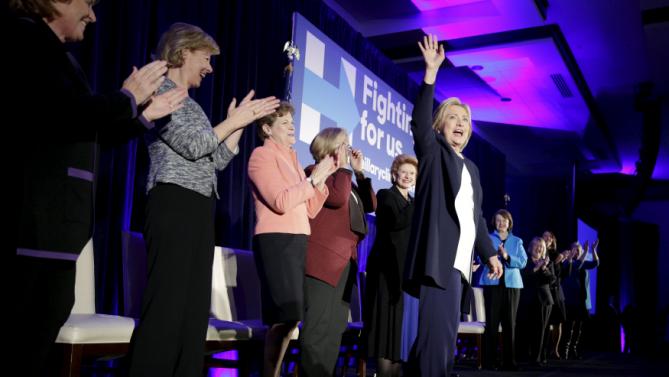
- Democratic presidential candidate Hillary Clinton waves as she joins 13 female senators for a "Women for Hillary" endorsement event and fundraiser in Washington November 30, 2015. REUTERS/Joshua Roberts
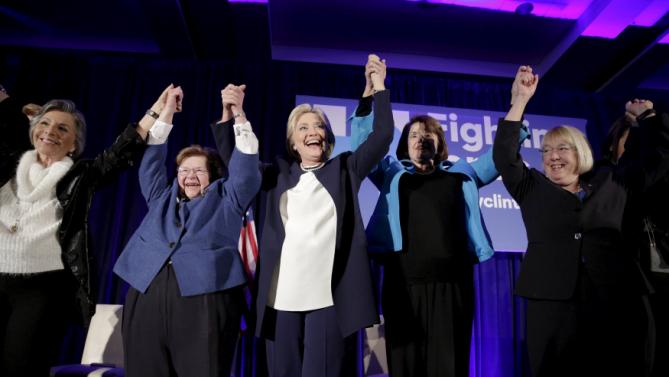
- Democratic presidential candidate Hillary Clinton (C) raises her arms while joining 13 female senators for a "Women for Hillary" endorsement event and fundraiser in Washington November 30, 2015. With her are (from left): Senators Barbara Boxer (D-CA), Barbara Mikulski (D-MD), Dianne Feinstein (D-CA) and Patty Murray (D-WA). REUTERS/Joshua Roberts

- Democratic presidential candidate Hillary Clinton (C) smiles as she joins 13 female senators for a "Women for Hillary" endorsement event and fundraiser in Washington November 30, 2015. With her from left are Senators Barbara Boxer (D-CA), Barbara Mikulski (D-MD), Dianne Feinstein (D-CA) and Patty Murray (D-WA). REUTERS/Joshua Roberts
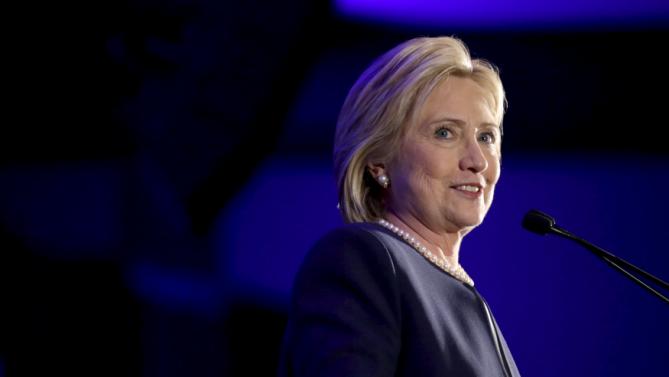
- Democratic presidential candidate Hillary Clinton speaks as 13 female senators join a "Women for Hillary" endorsement event and fundraiser in Washington November 30, 2015. REUTERS/Joshua Roberts

- Supporters of Democratic presidential candidate Hillary Clinton wait for her to join 13 female senators for a "Women for Hillary" endorsement event and fundraiser in Washington November 30, 2015. REUTERS/Joshua Roberts
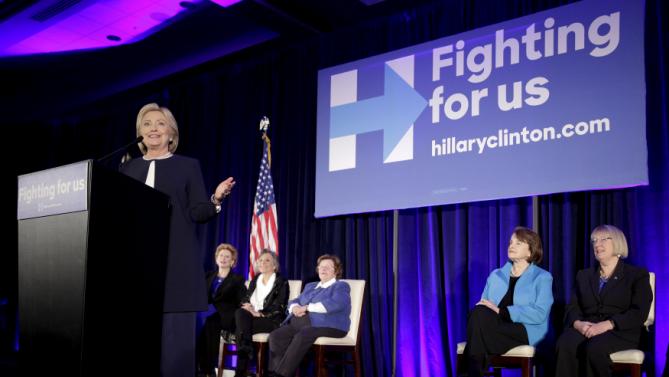
- Democratic presidential candidate Hillary Clinton speaks as 13 female senators join a "Women for Hillary" endorsement event and fundraiser in Washington November 30, 2015. REUTERS/Joshua Roberts
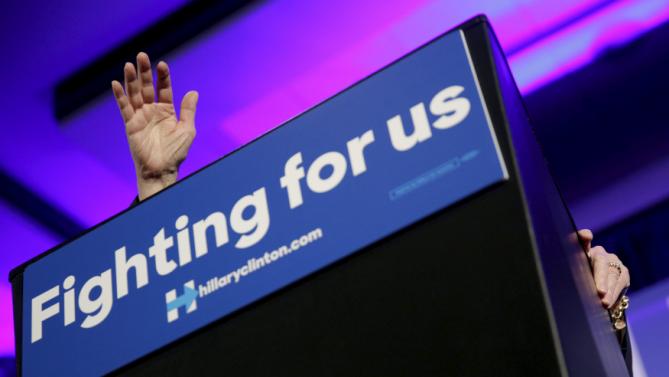
- Democratic presidential candidate Hillary Clinton speaks as 13 female senators join a "Women for Hillary" endorsement event and fundraiser in Washington November 30, 2015. REUTERS/Joshua Roberts
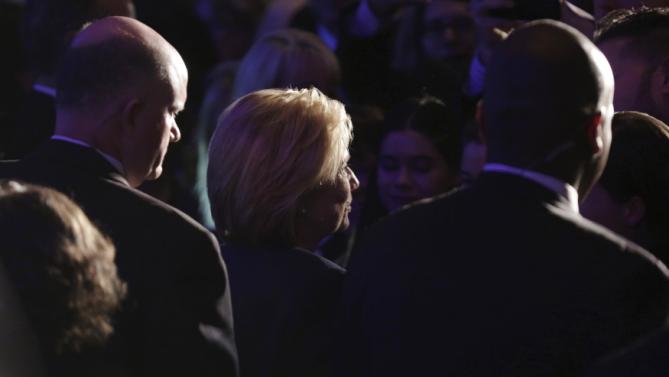
- Democratic presidential candidate Hillary Clinton is flanked by Secret Service agents as she greets supporters during a "Women for Hillary" endorsement event and fundraiser in Washington November 30, 2015. REUTERS/Joshua Roberts
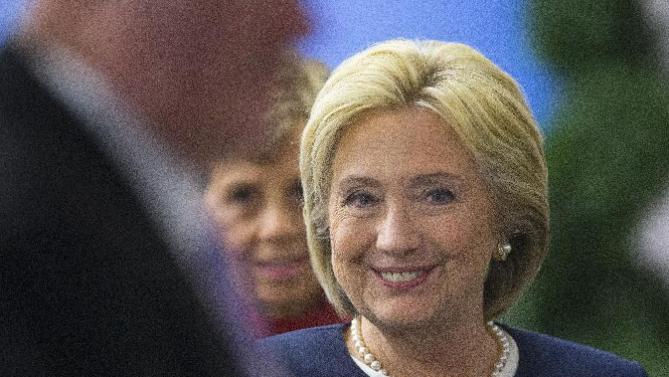
- Democratic presidential candidate Hillary Clinton smiles as she walks off-stage after speaking at the Atlantic Council Women’s Leadership in Latin America Initiative in Washington, Monday, Nov. 30, 2015. (AP Photo/Pablo Martinez Monsivais)

- Zoey Verbesey, 10, and Catherine Dooley, 9, supporters of Democratic presidential candidate Hillary Clinton, wait for her to join 13 female senators for a "Women for Hillary" endorsement event and fundraiser in Washington November 30, 2015. REUTERS/Joshua Roberts

- Democratic presidential candidate Hillary Clinton speaks as 13 female senators join a "Women for Hillary" endorsement event and fundraiser in Washington November 30, 2015. REUTERS/Joshua Roberts

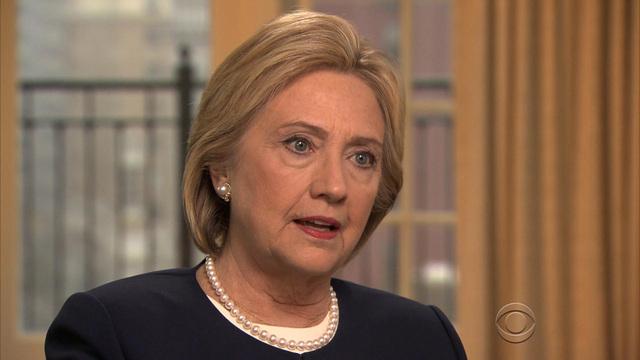
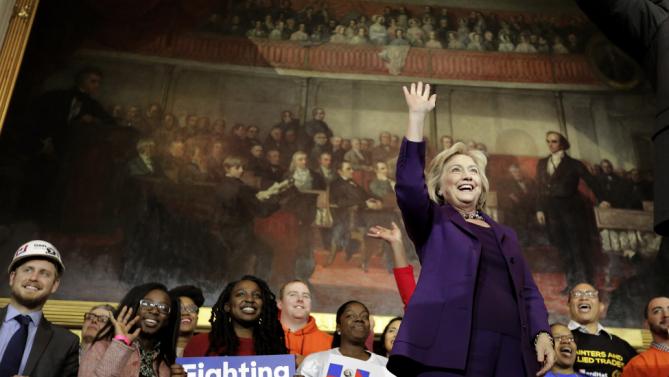
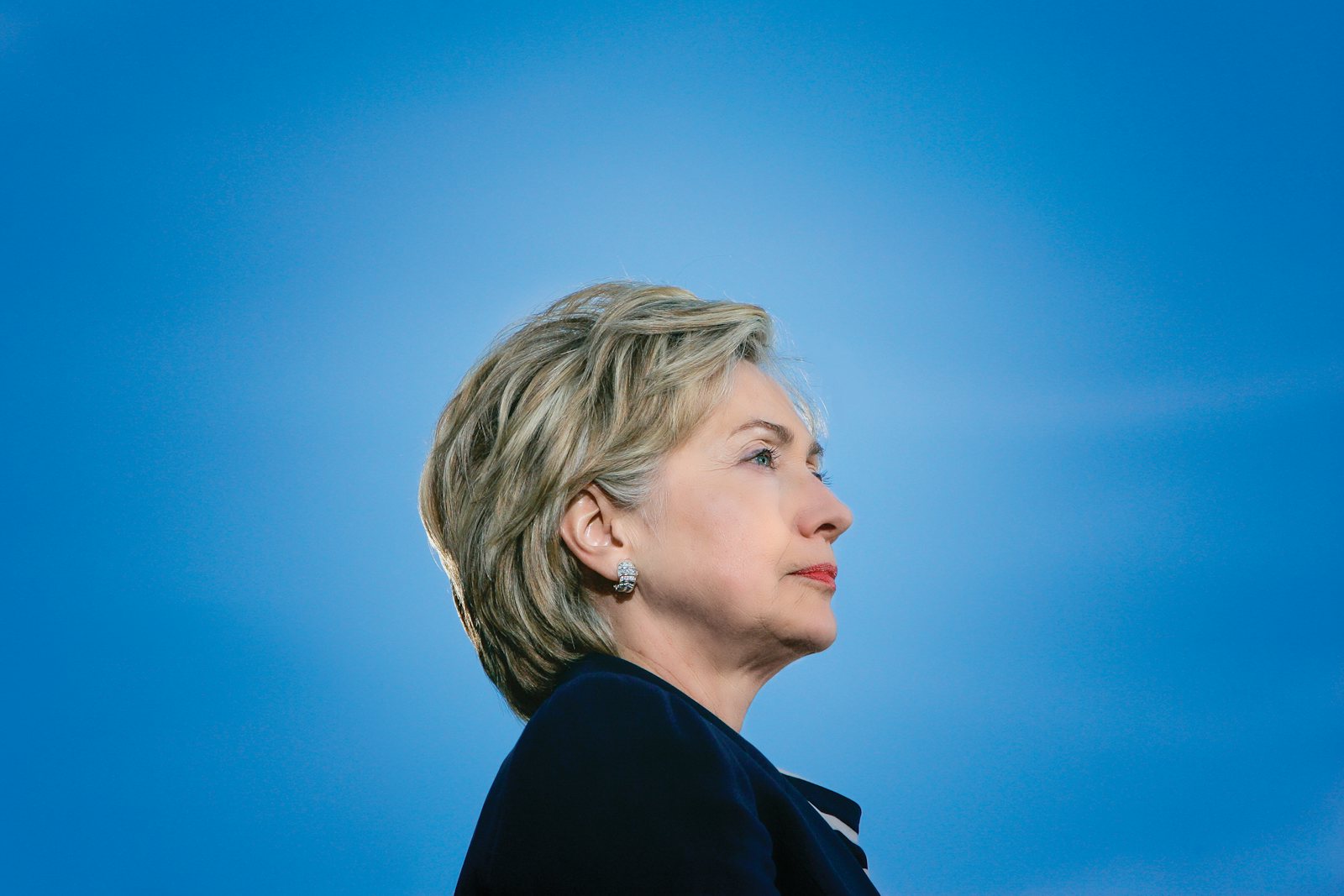

 By
By 